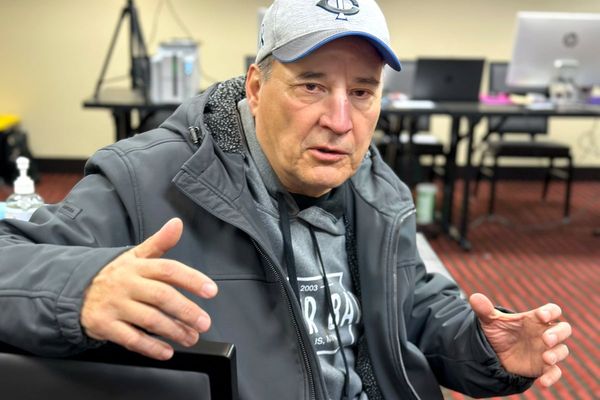
Every market cycle has its own cast of optimists and skeptics. But few voices carry as much weight as the executives who actually run the companies we own. When those leaders open their own checkbooks for seven figure insider purchases, they are not talking, they are betting real money that the market is underestimating their business.
We all know that insiders often step up when prices are down. History is full of those moments: March 2009, March 2020, December 2018. Markets were in chaos, the fear gauges were flashing red, and CEOs and CFOs across America were quietly buying millions of dollars' worth of their own stock. Those clusters of high conviction purchases have consistently marked the inflection points of bear markets.
Yet what is often missed is that these large C suite purchases can also pay off handsomely in strong bull markets. The logic is simple: during expansions, a seven figure buy is not about survival, it is about conviction in continued growth. When executives commit major personal capital while their stocks are already high, they are signaling that the runway ahead still looks long. In many of those cases, the companies went on to deliver another leg of performance well beyond the broader market.
Across the full 25 year sample, the pattern holds. Stocks purchased with insider dollars averaged roughly 30 percent total returns in the first year after a major buy, compared with about 15 percent for the S&P 500 over the same period. Even two and three years later, they continued to edge out the market. The strongest gains came when the purchase followed a period of weakness, but insiders who bought aggressively in bull markets still produced double digit excess returns more often than not. Whether buying a discounted asset in a downturn or doubling down on growth momentum, the insiders' advantage comes from the same source: they know their businesses better than anyone else.
There is a behavioral edge at play too. Insiders are contrarian by necessity. They buy when the headlines scream panic, but they also buy when the market is yawning, and nobody is paying attention. Those quiet million dollar accumulations during rising markets often precede surprise earnings beats, new product cycles, or accretive acquisitions, the kinds of catalysts only an insider can truly anticipate.
Over time, the math compounds. A portfolio following seven figure insider buys has historically outperformed the S&P 500 by 10 to 15 percentage points annually in the first year, and by smaller but persistent margins in years two and three. Roughly six out of ten of those trades beat the market over the long run. Even during powerful bull runs, the insiders who kept buying captured more upside than the index itself.
The takeaway is clear. Big insider buys are not just a "buy the dip" tool, they are a universal signal of conviction. When a CEO or CFO invests millions of personal dollars, they are betting on more than a rebound, they are betting on the strength of their company's trajectory across cycles. That is why tracking large insider transactions remains one of the most reliable ways to separate noise from knowledge.
Three Recent Examples of Big Insider Conviction
We are seeing that same pattern again right now. Across sectors, from consulting to biotech to asset management, executives are writing seven figure checks to buy stock on the open market. These are not paper option grants or routine purchases; they are real cash commitments, made at a time when the market is digesting mixed signals about growth and rates.
FTI Consulting (Ticker: FCN) offers a textbook example. On October 24, 2025, CEO Steven Gunby bought 7,500 shares, more than $1.1 million worth, on the open market. FTI is a global business advisory firm that thrives in complex environments: corporate restructurings, litigation support, and strategic communications. When volatility rises and businesses need help navigating change, FTI is there. Gunby's purchase signals clear confidence that the next leg of corporate activity will keep the company busy and profitable. Historically, his timing has been sound, as past insider buying waves at FTI have coincided with strong performance in the following year.
Over in biotech, Summit Therapeutics (Ticker: SMMT) has drawn even more dramatic insider action. Co CEOs Robert Duggan and Mahkam Zanganeh have been buyers several times in recent months, most notably acquiring more than $6 million each worth of shares in September. Biotech insiders do not make moves like that unless they see something in the clinical data or upcoming catalysts that the market is missing. The company's lead programs in oncology and infectious disease are entering key trial phases, and these multi-million dollar insider bets suggest real confidence that those results could be transformative. For investors, it is a reminder that large insider buys are not limited to defensive sectors, they often show up in high risk, high reward industries just before major turning points.
Finally, Cohen & Steers (Ticker: CNS) shows the other side of the story: conviction during a challenging rate environment. The firm, a pioneer in listed real asset and income investing, has faced pressure from higher yields and investor rotation out of REITs and preferreds. Yet in October, co-founder and executive chairman Robert Steers purchased roughly $2.8 million of his company's stock. That is not a token show of support, it is a direct vote of confidence in the long term value of real assets at a time when sentiment is skeptical. Steers built Cohen & Steers through multiple rate cycles, and when he steps up to buy, it usually marks the moment when the tide is about to turn for income oriented investors.
These three executives operate in completely different industries, yet their actions rhyme. Each made a large, discretionary, open market purchase, a seven figure decision that cannot be explained away as a corporate formality. And in every case, the message is the same: these leaders believe their stock is undervalued relative to its true earning power. Whether we are in a bull market or a mid-cycle pause, those are the kinds of signals that experienced investors pay attention to.
The Bottom Line
Large insider buys work because conviction does not go out of style. When a CEO risks millions of dollars of personal capital, it is a tangible measure of belief, one that tends to pay off across every kind of market environment. From FTI Consulting to Summit Therapeutics to Cohen & Steers, the pattern is alive and well: insiders are still buying big, and history says those who follow the money often come out ahead.







